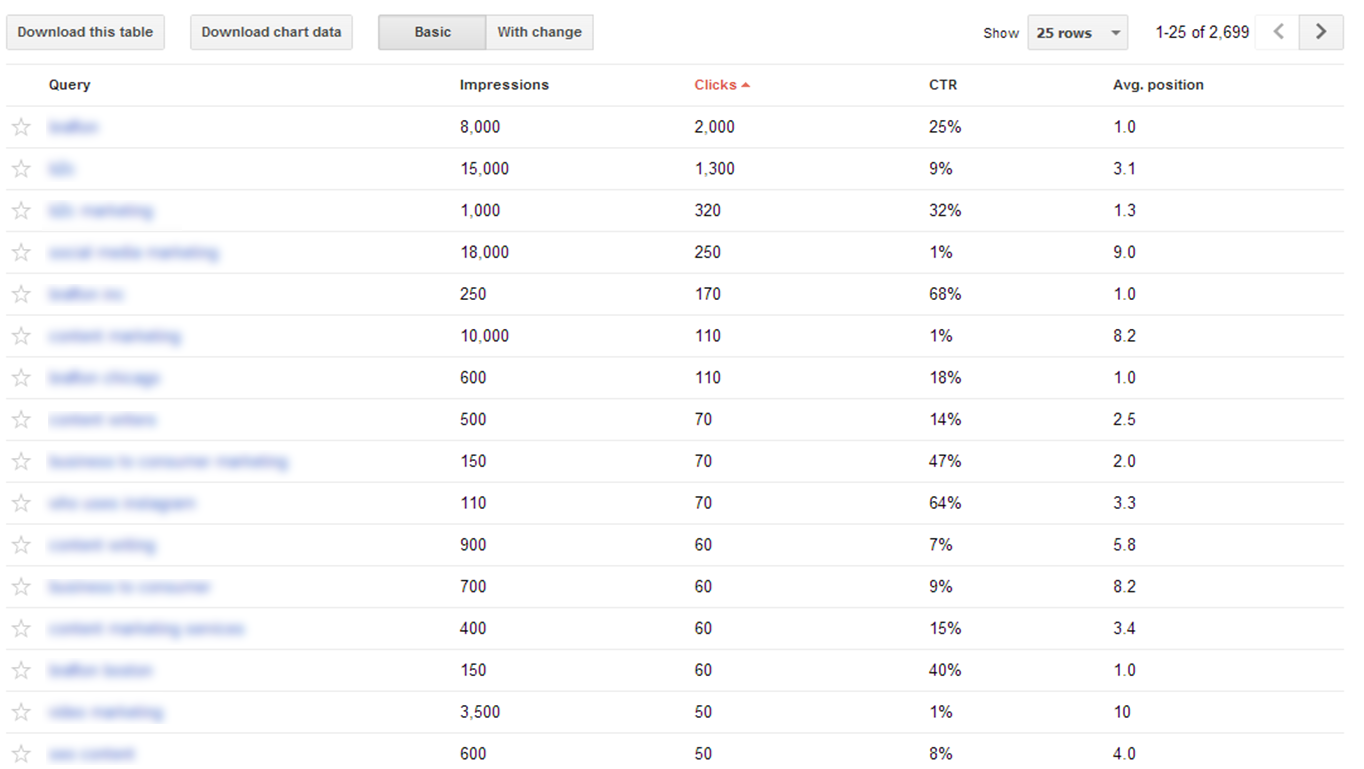“What’s in a word?” Decidedly not all the answers to your SEO problems. Google has confirmed its plans to encrypt search activity, meaning soon most (all?) keywords will appear as “(not provided).” Even search phrases from users who aren’t signed in to their Google accounts will move behind the proverbial veil. If you missed it, you can keep track of the rising share of keyword (not provided) organic traffic across sites at (Not Provided) Count. Current theories on WHY Google is doing this range from AdWords conspiracy (as keyword data is still available for paid searches), to bad blood between Google and the National Security Agency.
Whatever the reason for it, this change is not entirely unexpected. In November of 2011, up to 12 percent of keyword data was masked due to “secure search” settings. By August of this year, Brafton reported (not provided) keywords had jumped to account for at least 30 of organic traffic for the average site. Still, the recent report of 73 percent (not provided) queries – and counting – is a higher and faster jump than before.
This certainly isn’t good news for marketers: It presents challenges for anyone who wants to track SEO keyword success, or make keyword enhancements based on audience demand.
But this isn’t the end of SEO tracking. Far from it, this is the beginning of a new era for what’s mainstream in SEO metrics. There are still ways to monitor your keyword success, and there are plenty of available insights that can build your organic website traffic. We’ll get into some strategies to overcome keyword (not provided) – but first, here’s some tough love: If your SEO strategy is (/was) majorly dependent on keyword traffic data, you need to rethink what you’re doing anyway. The normalization of (not provided) is an important reminder that site owners need to be more creative about how they track their search success. Keywords insights in themselves are not enough to build strategies that win profitable organic audiences.
Reminder: Keywords aren’t the be-all, end-all for SEO
Search engine optimization today is not about matching queries, it’s about providing answers. This paraphrases a statement from Google when the company introduced Knowledge Graph. As Amit Singhal explains:
“Take a query like [taj mahal]. For more than four decades, search has essentially been about matching keywords to queries. To a search engine the words [taj mahal] have been just that—two words. But we all know that [taj mahal] has a much richer meaning…. It’s why we’ve been working on an intelligent model—in geek-speak, a “graph”—that understands real-world entities and their relationships to one another: things, not strings.”
He went on to call the Knowledge Graph a “first baby step” in revolutionizing search.
Just this week, Google announced what could be a next step toward the devaluation of keywords in favor of information: Hummingbird. The words on a page still factor into rankings, but Hummingbird seems to emphasize the context above the “exact match” of queries. Here’s what Search Engine Land’s Danny Sullivan reports as Google’s explanation of Hummingbird:
Google said that Hummingbird is paying more attention to each word in a query, ensuring that the whole query — the whole sentence or conversation or meaning — is taken into account, rather than particular words. The goal is that pages matching the meaning do better, rather than pages matching just a few words.
This isn’t to say you don’t need keyword-conscious posts. Of course there need to be some signals for search engines to understand what a page is about. But there are other ways of gauging what information is bringing people to your site, and positive rankings can get people in the door – but they won’t close the deal and get people to trust your brand. It’s not the keywords. Success is in how you use them.
In case you’re not sold on this concept, let’s start with some other ways to derive keyword data.
Webmaster Tools for keyword insights in a world of (not provided)
At least for now, there is still ample data provided in Webmaster Tools. It doesn’t provide an archive of keyword data beyond 90 days, and there is no option to slice and dice this keyword information to see, say, which keywords bring in the most convertible website traffic. But WMT has a lot to offer.
Using the “Search Queries” tab, you can see:

- How many impressions different keywords drive
- Keyword click-through rates from SERPs to your site
- An average ranking position (calculating the average top spot of your query as it appears for different users with their own unique Google search settings)
The data is easily downloaded and can be used for cross- time period comparisons.
UPDATE: After this post was published, Google made some Analytics changes. This keyword data, once available only in Webmaster Tools, is now available in Analytics under the Acquisition tab. Look for Search Engine Optimization, and click Queries.
Tracking organic traffic at a content level over a keyword level
The more important method of post SSL-search survival is to focus on raising organic traffic levels overall, optimizing for convertible traffic – not keywords. If you’re investing in good content marketing, you’re writing content optimized for conversions: It addresses audience queries, not keyword queries, and reaps natural SEO rewards. If you’re not investing in good content marketing that you hold accountable for results beyond keyword-centric metrics, ask yourself why you’re paying for that.
A keyword result is only as good as its connection to a prospect – and prospects don’t care about keywords, they care about information (fueled by content – not keywords).
My colleague and one of Brafton’s directors of content marketing Patrick Berzai explains keyword optimization (versus conversion optimization) this way:
Rank is like batting average: it’s great to rank well, but it doesn’t directly correlate to winning. Content marketing is all about quality traffic and conversions. Quality traffic and conversions are more like OPS (on-base average plus slugging) which is the baseball statistic most directly correlated to “wins.” To make this analogy more basic, it’s not about how many hits you get, it’s how many bases you get when you get on base.
Instead of mourning the loss of keyword-rooted traffic insights, consider some of the following tactics:
- Evaluate top organic traffic landing pages for informational query insights. You can reverse engineer keyword and content ideas based on topics that demonstrates the broadest search reach for your brand.
- Evaluate the landing pages of your top-converting organic traffic for higher value informational query insights. Make educated inferences on what subjects people want using the URLs that bring people to your site who then go on to take desirable actions.

- Evaluate your SEO efforts according to broader wins, such as:
- The volume of organic traffic you acquire over time
- Reduction in organic traffic bounce rate
- Time on site/ Pages per visit for organic traffic
- Conversion rates for organic traffic
Keyword (not provided) makes it necessary to think outside of the keyword box for SEO. While losing data that can be useful is disappointing, the SSL update could a good thing if it gets more website owners and marketers thinking about more creative content strategies instead of focusing on targeted phrases.
To quote Google’s Matt Cutts, explaining the future of SEO: “Succeeding in SEO will be the same as it’s always been if you’re doing it right – give the users a great experience.”



